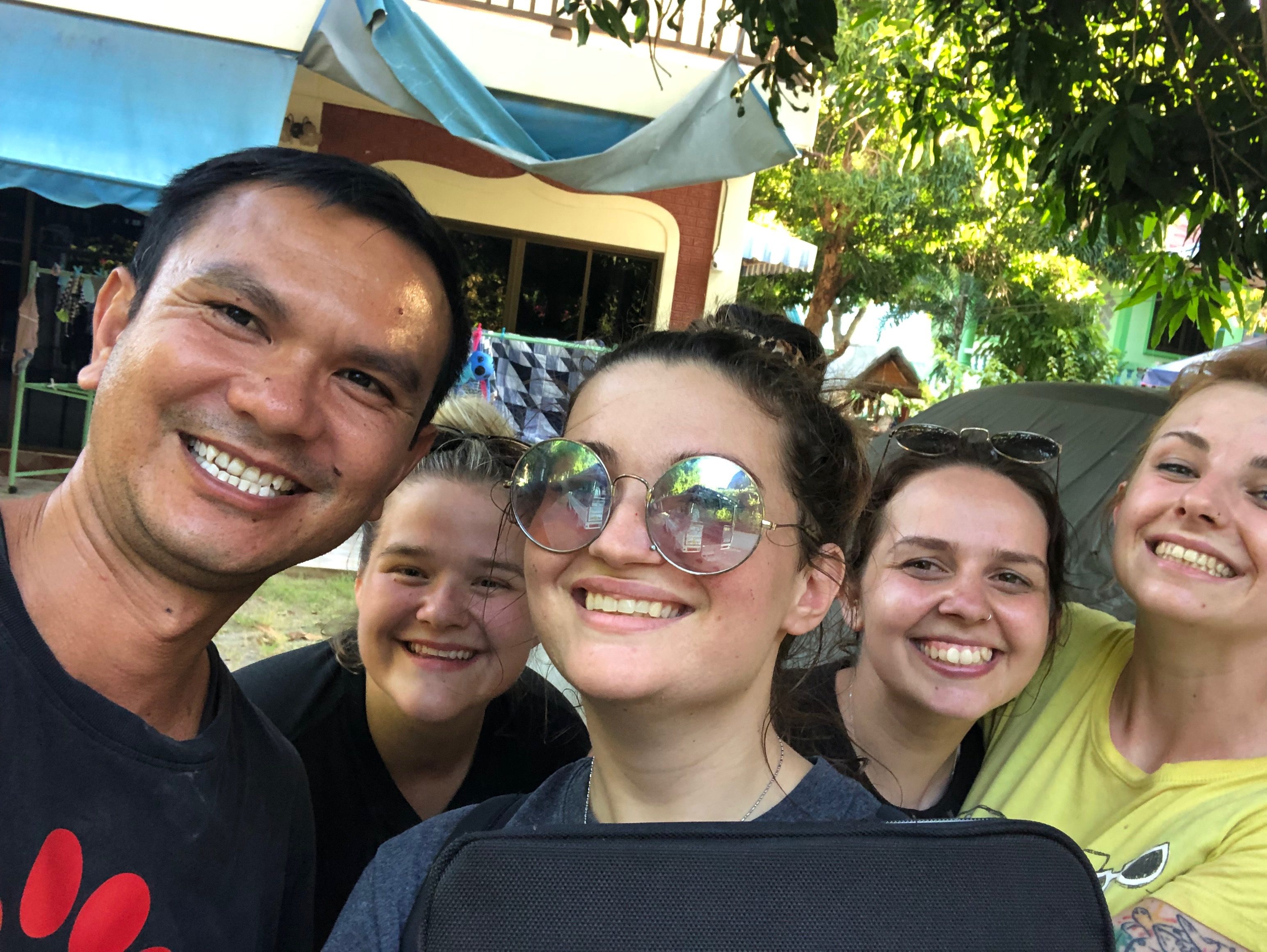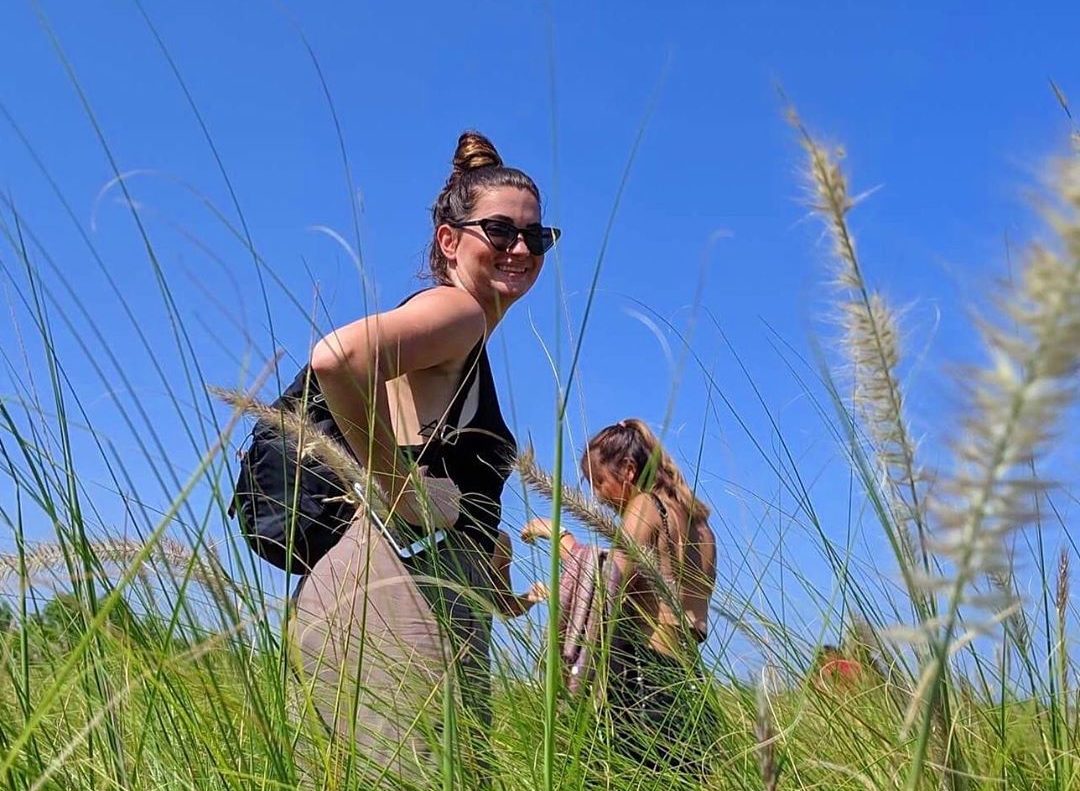Just when you’ve finally hit your stride and feel confident and happy with the new country you’ve moved to, it’s time to head back to your home country.
By now you’ve probably heard about culture shock, but if you’re planning on traveling abroad, you’ll also need to prepare for reverse culture shock as well. Reverse culture shock is an entirely separate issue from culture shock, sometimes requiring different tools and techniques to help get you through.
Reverse culture shock will rear its ugly head quicker than you would expect, especially if you’ve been in a completely different culture from the culture you grew up in. In my case, I was returning to America, a highly individualistic society, after spending 3 months in Thailand, a collectivist society.
I thought I would have at least a few weeks before I started experiencing reverse culture shock, and thought the phases would be similar to the culture shock phases I went through in Thailand. I was so looking forward to the honeymoon phase where everything seemed perfect and nothing could go wrong.
To my dismay, I felt the effects of reverse culture shock as soon as I landed and went through airport security in the US. I had been fooling myself up until then, thinking that since I was only away for 3 months, the transition would be easy and the negative side effects wouldn’t hit me quite as hard. I couldn’t have been more wrong. I found myself frantically trying to hold on to the lessons and traditions I learned in Thailand, afraid that if I succumbed to my surroundings I would lose all of the progress I made abroad. But it was the aspects of Thai culture that I took with me that helped me reacclimate to American culture.
First things first, let’s talk about what reverse culture shock actually is. Reverse culture shock is the psychological and emotional distress people feel when re-entering their home country after spending time abroad. Many definitions out there will only discuss the effects of reverse culture shock for people who have been away from their home country for a year or more, but anyone who has spent more than a few weeks in another country can experience reverse culture shock. The more differences there are between the two cultures, the more intense the effects will be.
Like culture shock, reverse culture shock affects people in different ways, depending on a number of different factors, such as the length of time they spent abroad, how comfortable they became with the foreign culture, and whether they’ve experienced reverse culture shock before. Despite these differences, there are some practices that have been proven to help reduce the stressors of reverse culture shock.
Here are some tips and tricks that helped me reintegrate into American society while keeping aspects of Thai culture I’ve come to know and love.

Start preparing and educating yourself on reverse culture shock before you get home.
Just because you grew up in your home culture and are “familiar” with it doesn’t mean you are exempt from experiencing reverse culture shock. Unfortunately, reverse culture shock is not as recognized as culture shock, making it difficult for those returning home to get the resources they need to feel comfortable.
Luckily for me, Greenheart provides resources to help with reverse culture shock and makes these resources available at any time. Treat going back home the same way you did going to a new country; do your research! You wouldn’t leave for a foreign country for 3 months without doing a little research, would you? Make sure you do some research about the country you’re going back home to; a lot of things can change in just 3 months, and you’ll want to prepare yourself as best as you can. Trust me, there’s nothing worse than being incredibly jetlagged and having reverse culture shock hit you in the airport when you have 40 minutes in between connecting flights. Imagine if you had to go through all that AND didn’t have the resources you needed?
Remember the “mai bpen rai” no worries attitude you learned about and acquired in Thailand? Take that with you. If you make the decision to work or volunteer in Thailand (and you should!) you’ll hear the words “mai bpen rai” quite a lot. This phrase means “no worries” in Thai, and really encapsulates the energy in Thailand.
In Thailand, you don’t experience the same stress and feeling of having to rush everywhere like you do in the US. When the hustle and bustle of life gets to be too much, just say “mai bpen rai” until you really do have no worries.
Just because it’s different, doesn’t mean it’s wrong.
If you read my other blog about experiencing culture shock, then you’re familiar with this phrase. This saying is something that helped me immensely when I was going through culture shock in Thailand, and it shouldn’t have come as a surprise that it would help me when I encountered American culture for the first time in 3 months.
Priorities, values, traditions, and ways of doing things are going to be different from your host country and will seem strange. When adjusting to a new culture, whether it’s a foreign culture or the culture you’ve grown up in, it’s important to remember that just because something is different doesn’t mean it’s wrong. Try not to compare everything to the country you were just in and assign negative values to your home country’s culture. Keep in mind that at one point, everything about your home culture seemed normal, and even “right”, and that feeling of normalcy will start to come back eventually.

Keep developing your curious mind, and never stop learning.
Even though you are going back to the culture that you grew up in, you don’t know everything about it, and there are always going to be new things to learn and experience.
To keep yourself from feeling like you’re in a rut, be open to trying new things and immerse yourself in the local culture, just as you did when you arrived in the new country.
Use your puak!
In Thailand, the network of people you can rely on is called your puak, and after 3 months, your puak will (hopefully) be pretty big.
Just like every other difficult transition in life, it’s better with support than going it alone. You will meet people abroad that will have to return to their home country as well, so talk to those people about what you’re going through and ask about what they are doing to get through reverse culture shock. It’s nice to know that you aren’t alone, and by talking to people you met while abroad, you’ll keep the memories you made there alive!

Above all else, keep a smile on your face.
If there’s one thing I learned during my time in the Land of Smiles, it’s how to keep a positive attitude and keep a smile on despite negative circumstances. Try not to let the stress of reverse culture shock overwhelm you and ruin your positive outlook on things. There’s a cliche saying about having to fake it till you make it, and it actually works in this case.
Even if you aren’t happy or feeling positive, smile through it anyway. At first, it’ll feel ridiculous, and sure people may look at you like you’re crazy because you have a smile plastered on your face at 6 in the morning in the midst of the mayhem that is airport security. But that smile will center you and bring your energy up, that fake feeling will go away, and the smile will start to feel genuine. Then before you know it, you’ll have other people smiling back at you, and you’ll have brought a little piece of Thai culture home.
One of the best ways to honor the country and the culture you just spent 3 months living in is to take a piece of it with you home and integrate it into your everyday life. Educate those around you about your experience and the things you learned. You don’t need to fall into the trap of completely abandoning everything about the other culture you experienced. So when you find yourself worrying about having to go back home after being abroad, stop, take a deep breath, put a smile on your face, and know that everything is going to be just fine.
Amanda Voyles, from Tallahassee, Florida, is a Greenheart Travel First Time Traveler Scholarship recipient. Learn more about Greenheart Travel’s scholarship opportunities to help you travel for a change!

Leave a Reply